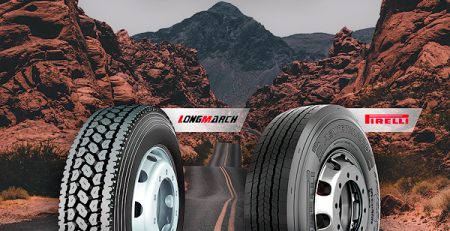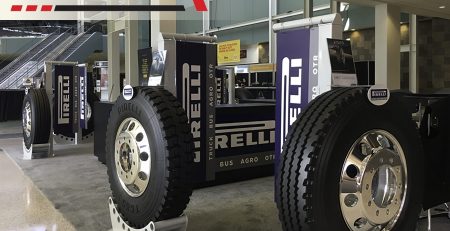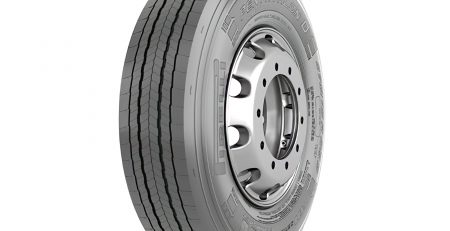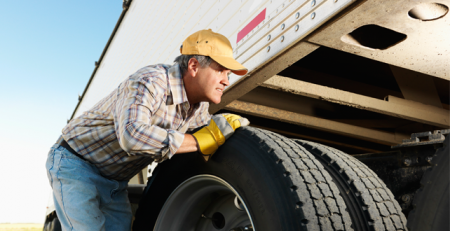FMCSA tire requirements for truck companies
An overview of the FMCSA regulations for tires on buses and trucks, including using adequate tires, and inspecting and maintaining tires

The Federal Motor Carrier Safety Administration (FMCSA) imposes many duties on truck companies and truck drivers. One of those duties is the duty to maintain safe tires. Under the tire restrictions (§ 393.75 of FMCSA Safety Regulations), there are strict prohibitions on tires that cannot be used:
§ 393.75 Tires.
(a) No motor vehicle shall be operated on any tire that—
- Has body ply or belt material exposed through the tread or sidewall,
- Has any tread or sidewall separation,
- Is flat or has an audible leak, or
- Has a cut to the extent that the ply or belt material is exposed.
But the rule is not just prohibitive. It also outlines strict standards about what kind of tires can be used:
Tread groove: Under this rule, § 393.75(b), any tires used on the front wheels of a bus or truck shall have a tread groove that is at least 4/32 of an inch when measured from the tread groove. This is meant to prevent truck drivers, or truck companies from riding on dangerous “bald” tires which are prone to bursting, and that make stopping and steering more difficult and dangerous.
Tread measurement: § 393.75(c) regulates all tires, reading that no tires, not even ones one the back wheels of a truck or bus, shall have treads less than 2/34 of an inch when measured from the treat groove.
Regrooved tires: The rule even outlines regulations for regrooved tires. Sections (d) mandates that no bus, period, shall use regrooved tires on the front wheels. Section (e) limits the load capacity that trucks may place on regrooved tires used on the front wheels.
Visually inspect tires: There is also a duty to visually inspect tires. This makes sense. Of course, how would a truck driver or a truck company know that the truck’s tires are in need of maintenance if they do not regularly inspect them? Truck drivers should check their tires before even turning on their truck. In the course of a delivery, truck drivers should inspect their tires at every opportunity, and monitor tire pressure along the way as well.
Very rarely, freak trucking accidents involving tire blow-outs do happen. Debris on the road can puncture a tire, or some latent defect can cause a tire to explode. But in almost all instances, tires blow simply because unsafe truck companies or an irresponsible truck driver broke the rules and did not properly maintain the vehicle.
Source: http://www.truckaccidentattorneysroundtable.com
Visit us:
301 W Gerri LnAddison, IL 60101
Contact us:
Phone: ![]() +1 224 422 2829
+1 224 422 2829
Mail: info@tire-max.com












